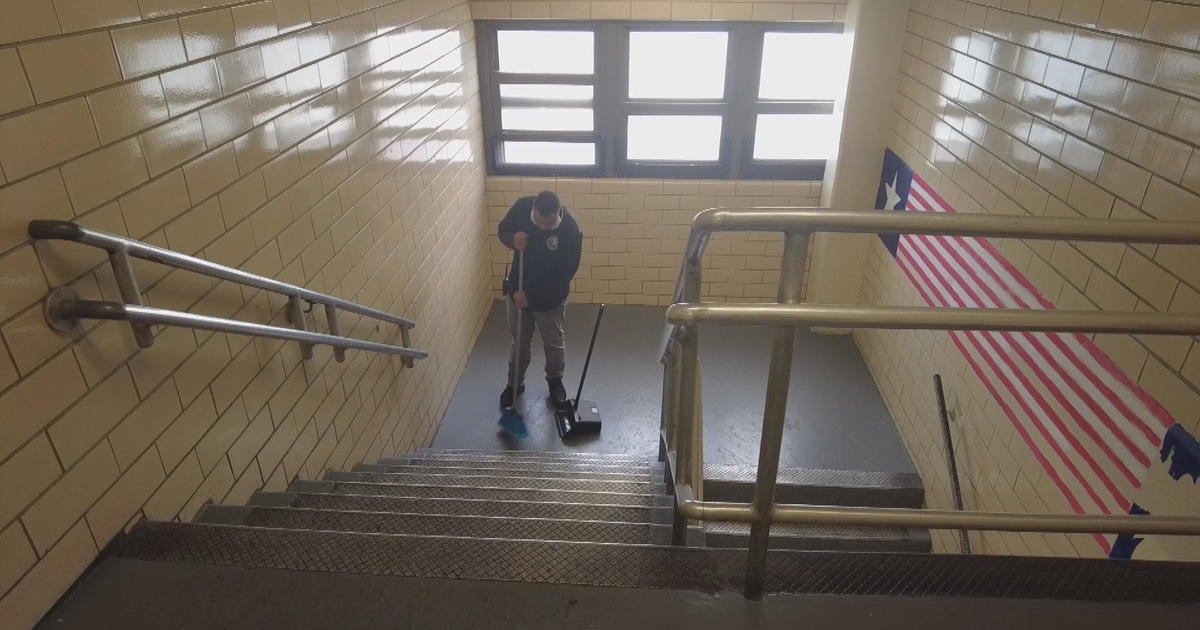Top Talkers Of 2018
Follow CBSPHILLY Facebook | Twitter
PHILADELPHIA (CBS) — Scientists discovered that the human body had another organ, a teacher fed a puppy to a turtle in front of his students, and a study reported that bacon was linked to causing cancer. Thus, it was a very eventful year. These are the top talkers of 2018:
The parent company of popular beverage, LaCroix, had a lawsuit filed against them in October. It is alleged that it was marketed with false claims that the drink was "100% natural." National Beverage Corp. denies the allegations but the news made waves through the LaCroix-drinking community. The lawsuit seeks to stop LaCroix from falsely promoting its products as natural and to award damages to those who purchased the drink under the assumption that it was all natural.
As if having to potentially scrap drinking LaCroix for health concerns isn't bad enough, a report revealed that bacon has been linked to causing cancer. The World Health Organization (WHO) explained how exactly red and processed meats are carcinogens but the evidence isn't conclusive. So until there is more concrete proof, WHO recommends limiting how much red meat you do eat.
That shouldn't be a problem for those who love Chick-fil-A considering that the fast-food restaurant announced nationwide delivery. Now, you can "Eat More Chikin" whenever you want and where ever you want. The announcement was made in November, but the only downside to the exciting news is that delivery is only available for customers within a 10-minute radius of participating restaurants.
And while companies were busy making it so we can eat ourselves into food comas, scientists were busy enlightening us to the existence of a new organ inside the human body. The interstitium is a network of fluid-filled channels that was found all around the body's connective tissues. Scientists in the field are debating though whether it can be officially categorized as an organ and think its more of a pathway.
Other research from the year caused worry for pet owners and lovers. The FDA found that drugs in the isoxazoline class, often used in products sold under the brand names Bravecto, Nexgard and Simparica, caused adverse events such as muscle tremors, ataxia and seizures, the FDA says. Officials warned dog and cat owners to be aware of adverse reactions and visit a veterinarian immediately.
That's not the only thing that had animal lovers up in arms. There was a wild story out of Boise, Idaho, in which it was reported that a junior high school teacher was under investigation for feeding a puppy to a turtle in front of his students. The teacher, Robert Crosland, had taught at the school for years and while he hadn't been cited or placed under leave, the issue was quite controversial.
If feeding a puppy to a turtle didn't raise the hair on the back of your neck, perhaps the story of a woman who died from eating raw oysters will do so. The woman, Jeanette LeBlanc, had bought a sack of raw oysters while on vacation in Louisiana. After eating about two dozen, she fell extremely ill with respiratory issues and was eventually diagnosed with a flesh-eating infection. LeBlanc passed away three weeks after she was diagnosed.
In lighter news, 2018 was a wild year for one man who made the mistake of giving his Uber driver the wrong address. Kenneth Bachman, from Sewell, had a big night out with friends while drinking in Morgantown, West Virginia. The drunken trip cost him over $1,600. The massive fee didn't deter Bachmann from returning to West Virginia to get his belongings though.
That's probably not the most "huh" thing to happen, though. Exploding toilets had people checking their systems to avoid a mess. About 1.4 million flushing systems were recalled from Flushmate due to an exploding hazard. Nearly 1,500 units had exploded across the United States and Canada, which prompted the recall.
And if exploding toilets don't make you scratch your head, perhaps the findings of this story will make you shake your head at 2018. A study by SureCall found that 10 percent of people admitted to checking their phone during sex. People between the ages of 18 to 34 years of age were almost twice as likely to check their phone during sex than those 35 to 51 years of age, the study found.







